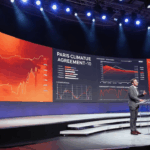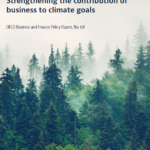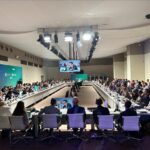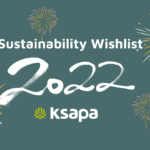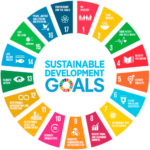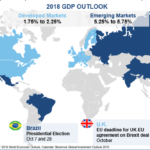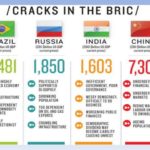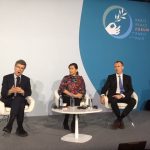Last month, the European Financial Reporting Advisory Group (EFRAG) released its first set of Draft European Sustainability Reporting Standards (ESRS). These 13 new standards are intended to shape the new Corporate Sustainability Reporting Directive (CSRD), which is bound to impact both European and non-European companies that do business within the European bloc.
What Does the EFRAG Proposal Entail?
On top of general principles and cross-cutting standards on strategy, governance and materiality requirement, the EFRAG proposal covers a broad range of ESG issues, including climate change, pollution, water and marine resources, biodiversity and ecosystems, resource use and circularity; corporate teams and supply chain workers, affected communities, consumers and end-users, governance, risk, management and internal controls and business conduct.
The exposure drafts likewise cover a broad range of ESG issues, including environmental and social consideration encompassing the reporting companies’ workforce, local communities and consumers. Each draft standard is intended to help businesses quantify their disclosure with specific requirements for their targets, plans, policies, performance metrics and strategies.
The EFRAG now opened a consultation on these Draft European Sustainability Report Standards. Comments on the relevance of each report, specific questions for review and proposed timelines for comment and implementation should be shared online and no later than 8 August 2022.
Shaping the Future of ESG Disclosure
There are now three ESG disclosure proposals open for consultation:
- The U.S. SEC Rule closed its call for comments on its Proposed Climate-Related Disclosure Rule on May 20, 2022 (Page count: 534).
- The International Sustainability Standards Board (ISSB) is also expecting feedback on its 112-page long General Exposure Draft Climate Exposure Draft by July 29, 2022.
- The deadline for comments on the EFRAG’s Exposure Drafts is August 8, 2022 (Page count: 395).
Critical Considerations For Close Scrutiny
The following 3 considerations are critical – particularly in view of the rising controversy around Elon Musk criticism of ESG ratings, Stuart Kirk and the financial sectors shortsightedness and the SEC’s fine of BNY Mellon over misstatements and omissions: .
- The purpose of ESG valuation = The ISSB proposal builds on the work of its founders over the last ten years and essentially aims to inform investors on their non-financial risks. To date, these risks tend to focus primarily on governance and the environment – as is clearly the case of the SEC’s recent pronouncements. The EFRAG, by contrast, outlines more of a societal project, geared at directing investments towards a fairer, more sustainable economy. We believe ESG should primarily focus on investment decision, but calibrated at a level avoiding greenwashing. Double materiality is a good entry point in this regard.
- The interconnectedness of E, S and G considerations = ESMA have called for private players to resolutely connect the dots across E, S and G issues where SEC is more focused on climate risks for now. We strongly believe an exclusive focus on climate does not cut it: other issues are equally important – including biodiversity or water stewardship. Both will likely require more than climate change mitigation efforts. Similarly, addressing climate may not necessarily benefit other considerations: for instance, energy efficiency involves using materials that are not – to date – adapted to a circularity approach, so that climate change efforts may come at the price of pollution, landfill and other waste-related risks.
- The quality of ESG coverage = Upwards of 90% of our current global economy is tied to small and medium-sized businesses. That means ESG data generated by listed companies is really not enough to assess the ESG performance of our economies and value chains. As such, the quality and penetration of ESG data coverage must span across markets (including emerging markets) and target smaller companies. This is critical to onboard these essential market segments on their ESG journey and implement consistent expectations across their value chains. Efforts coming with CSRD implementation – more standardized dataset, more obligation for SMEs, more digitalization making exchange of ESG data easier are all imperative dimensions strengthening quality of ESG coverage.
Conclusion
With decades of expertise on the topic, Ksapa specializes in calibrating and reporting financial and non-financial information. Our team works with a global ecosystem of 150+ experts, and global strategic partnerships in data science, legal and accountancy to develop and implements evaluation and critical analysis methodologies. Our teams help businesses and investors comply with concomitant reporting requirements and anticipating regulatory developments such as the ISSB and EFRAG draft proposal. We notably focus on streamlining teams and disclosure efforts to align with the latest requirements of the upcoming SEC disclosure requirements, EU taxonomy, SFRD and NFRD/CSRD. On this basis, we support sustainable and just transitions in the face of the socio-environmental and ethical challenges to come.
Président et Cofondateur. Auteur de différents ouvrages sur les questions de RSE et développement durable. Expert international reconnu, Farid Baddache travaille à l’intégration des questions de droits de l’Homme et de climat comme leviers de résilience et de compétitivité des entreprises. Restez connectés avec Farid Baddache sur Twitter @Fbaddache.







